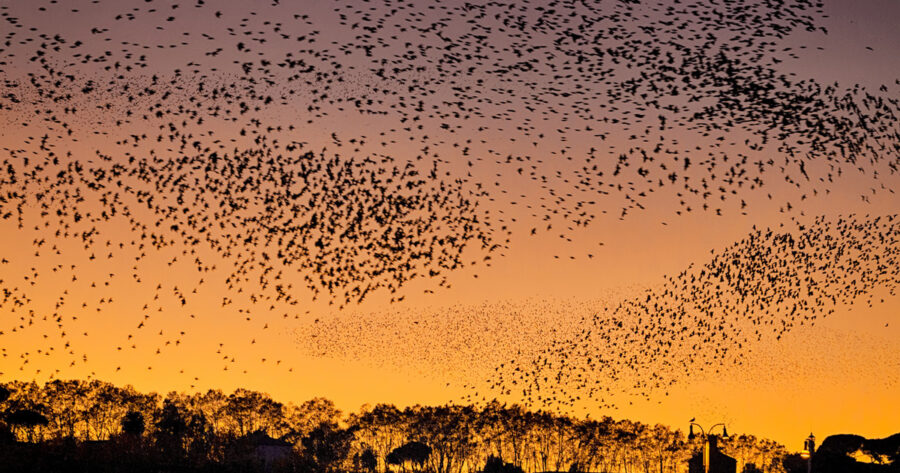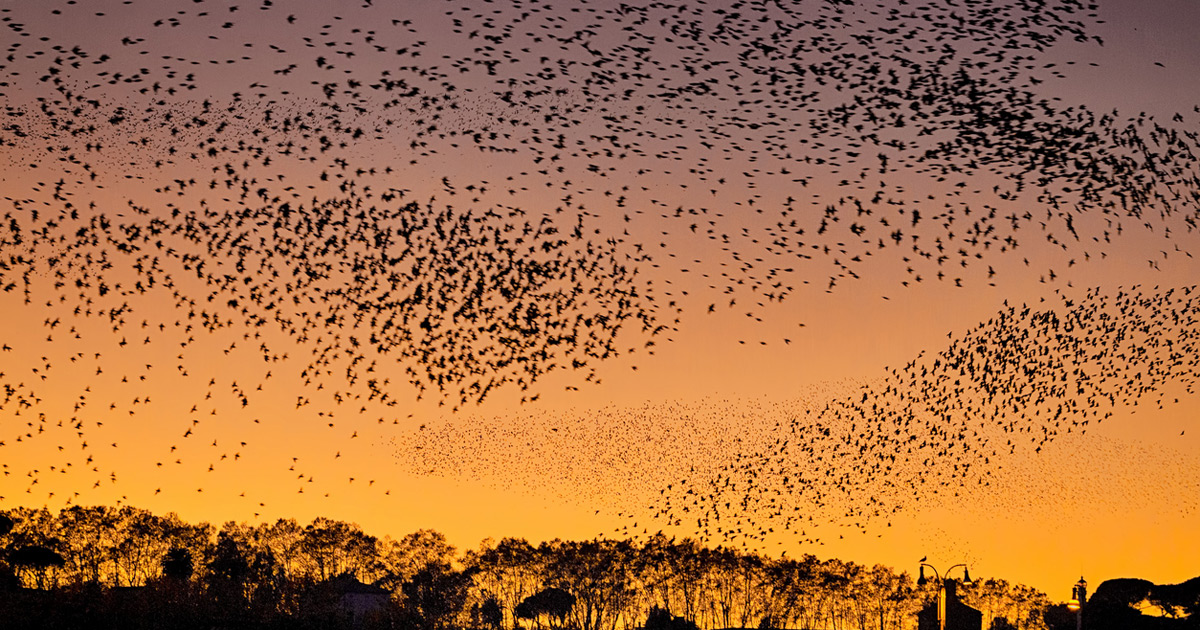
Fireworks Blamed for Killing Hundreds of Birds in Rome
Hundreds of birds died on New Year’s Eve in Rome, Italy, allegedly killed by the shock of celebratory fireworks and firecrackers, although this has not been confirmed. The birds, mostly starlings that fill the southern European skies at this time of year, are believed to have been startled when people set off fire crackers near […]

Hundreds of birds died on New Year’s Eve in Rome, Italy, allegedly killed by the shock of celebratory fireworks and firecrackers, although this has not been confirmed. The birds, mostly starlings that fill the southern European skies at this time of year, are believed to have been startled when people set off fire crackers near trees where they were roosting in the Termini Station area.

Animal protection organisation, OIPA International, posted a photo of birds lying dead on the streets of Rome, and tweeted: “#Rome #Italy: #NewYearsEve2021 the terrible consequence of #fireworks ?? dead #birds. Urge a ban ?”
A spokesperson for OIPA said: “It can be that they died from fear. They can fly up together and knock against each other, or hit windows or electric power lines. Let’s not forget they can also die of heart attacks.”
OIPA called the Midnight explosions “the New Year’s War”.

The fireworks were set off illegally by private individuals, as Rome has prohibited personal fireworks displays, said OIPA. There was also a curfew of 10pm (because of Covid) that appears to have been ignored.
Many South Africans have long been vocal against fireworks, because of the impact on animals, with Cape Town announcing a ban on fireworks two years ago.
OIPA claims on its website that for animals every fireworks is “an explosion of fear”. The organisation provides tips on protecting pets during fireworks. Their Italian branch has called for a ban on all fireworks. Another wildlife organisation, the UK’s RSPB (Royal Society for the Protection of Birds), told Sky News that “there is little evidence to suggest that fireworks harm wild birds but says further research is needed to ensure the best course of action for their conservation.”
Can Fireworks really be blamed for causing the death of birds?
As reported in a Forbes article in 2017, in winter in the northern hemisphere many wild birds (like the starlings in Rome) roost in huge flocks at night (hundreds of the tiny birds settle in one tree), unlike in summer where birds would be nesting in pairs or small family groups. Forbes said: “We’ve recently learned that when a fireworks display occurs near a wild bird roost, the birds simultaneously explode into the night skies in utter panic (more here), which can lead to huge numbers of deaths, usually because these birds either smash their skulls or break their necks as the result of flying into trees, fences, billboards, houses and other solid objects that they cannot see in the gloom and ensuing chaos.”
One well-documented case was in 2010 when over 5,000 red-winged blackbirds died in Beebe, Arkansas (in the USA), after a fireworks display. In the Netherlands, researchers have monitored the movements of wild birds on New Year’s Eve. Radar data shows that “tens of thousands of birds explode into flight promptly at midnight when public fireworks shows begin”, says Forbes.
